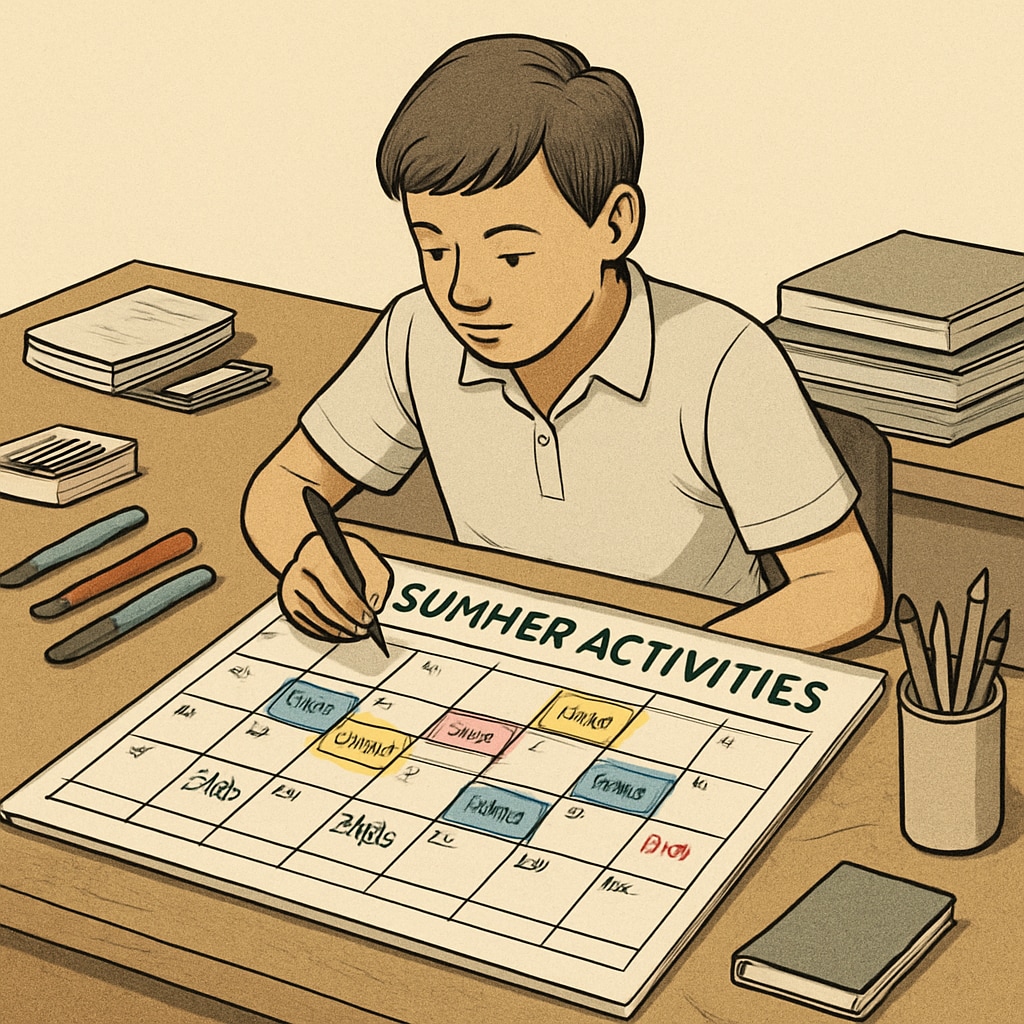High school students often face the challenge of balancing summer jobs with academic commitments. The decision to work during the summer can have significant benefits, including financial independence and skill-building, but it may also come with challenges related to managing time effectively. Striking a balance between work and academics is crucial for ensuring long-term success and avoiding burnout. This article outlines strategies to help students and parents make informed decisions about summer employment while maintaining focus on educational goals.
Benefits of Summer Jobs for High School Students
Summer jobs provide numerous benefits for high school students, beyond just earning extra cash. These jobs teach responsibility, time management, and communication skills, which are valuable both in academics and future careers. For example, students working in customer service roles develop interpersonal skills that can help them in group projects or classroom discussions.
In addition, summer jobs can foster a sense of independence. By managing their own earnings, students learn budgeting and financial literacy, preparing them for adulthood. Furthermore, job experience enhances college applications, as admissions officers often value extracurricular activities that demonstrate initiative and maturity.

Challenges in Balancing Work and Academics
Despite the advantages, summer jobs can sometimes interfere with academic responsibilities. Students who work excessively may find themselves too exhausted to focus on schoolwork or personal development. For instance, long working hours could limit time for reading, preparing for standardized tests, or engaging in enrichment activities.
Moreover, stress from juggling responsibilities can negatively affect mental health. High school students are at a crucial developmental stage, and overloading their schedules could lead to burnout. It’s important to weigh the pros and cons carefully before committing to a summer job.
Strategies for Achieving Balance During a 10-Week Summer Break
To make the most of summer employment without compromising academics, students and parents can adopt specific strategies:
- Set clear priorities: Determine whether the primary goal of summer is to earn money, gain experience, or prepare for academic challenges. Align job choices with these priorities.
- Choose flexible jobs: Opt for part-time positions with adjustable hours, such as tutoring or babysitting, which allow students to allocate time for studying.
- Create a schedule: Plan daily activities, balancing work, study, and relaxation. Use tools like calendars or apps to keep track of commitments.
- Communicate with employers: Discuss availability and academic goals with employers upfront to ensure they understand limitations.
By implementing these strategies, students can enjoy the benefits of summer work while preparing for the upcoming school year.

How Parents Can Support Their Teens
Parents play a vital role in helping their teens manage the balance between work and academics. They can provide guidance by discussing the pros and cons of summer employment and encouraging open communication about stress or challenges. For example, parents can help students identify jobs that align with their interests and long-term goals.
Additionally, parents should monitor their teen’s mental health and energy levels. If signs of burnout appear, they can encourage a reevaluation of priorities and suggest adjustments to the schedule. Providing emotional support and fostering a positive environment can make all the difference.
Conclusion: Finding the Perfect Balance
Balancing summer jobs and academic commitments is achievable with thoughtful planning and open communication. While summer jobs offer valuable life lessons and experiences, maintaining focus on educational goals is equally important. By setting clear priorities, choosing flexible work options, and managing time effectively, high school students can enjoy a productive and fulfilling summer. Parents and teens working together can ensure that both academic and career aspirations are met successfully.
For further reading: Explore time management techniques on Wikipedia and education insights on Britannica.
Readability guidance: Keep paragraphs concise, use lists for clarity, and include transitions like “for example” and “as a result” to enhance flow. Avoid long sentences and ensure active voice dominates.


